Trial of Winnipeg man who admits to killing 4 women to be heard by judge alone
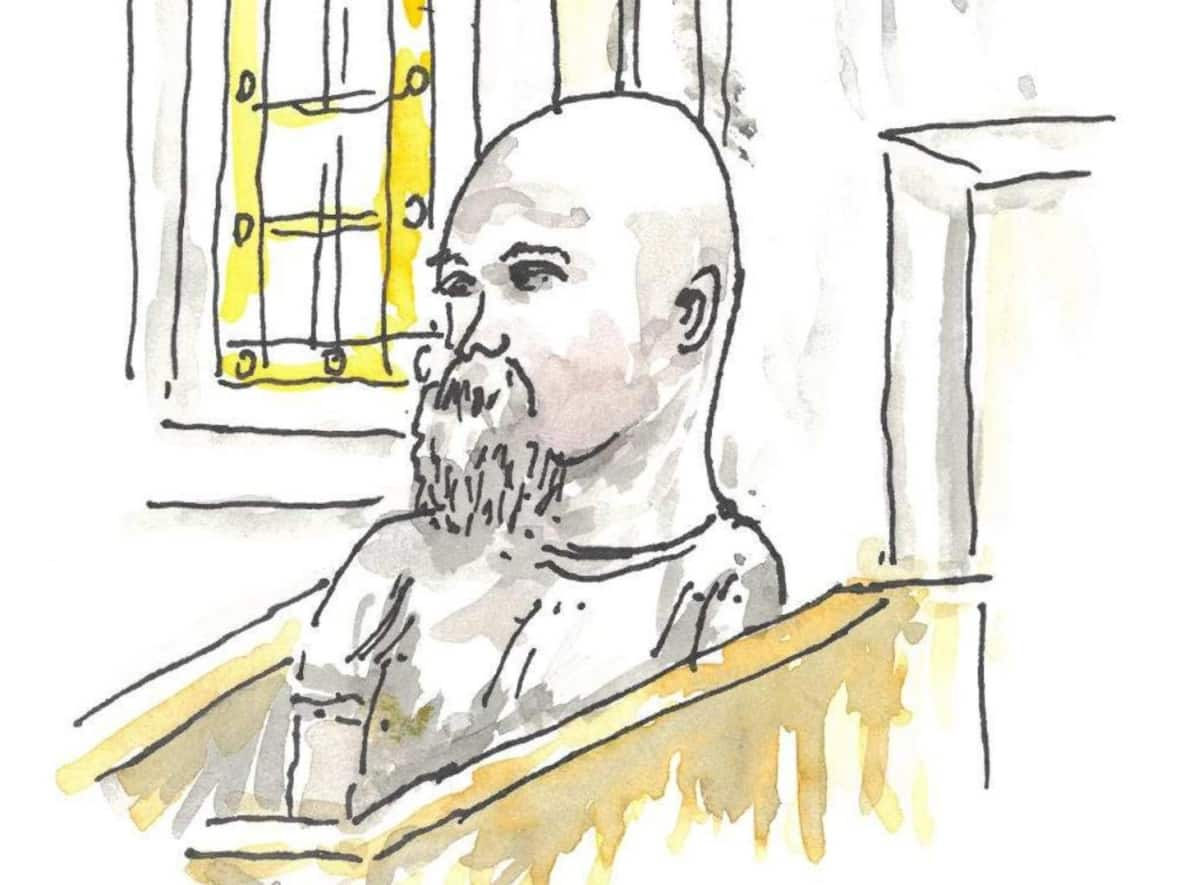
The jury trial of a man accused of killing four women in Winnipeg will now instead be heard by a judge alone, a change that comes after Jeremy Skibicki's lawyers said he admits to killing the women but will ask to be found not criminally responsible.
The Crown says that given it no longer has to prove Skibicki, 37, caused the women's deaths, prosecutors are now willing to proceed with a judge-alone trial — something they had previously strongly opposed.
Crown attorney Christian Vanderhooft revealed the update in court on Monday morning, saying the shift in their position came after lawyers for Skibicki said for the first time last week they planned to admit their client unlawfully killed all four women in 2022, but argue he was not criminally responsible due to mental disorder.
Skibicki has pleaded not guilty to four counts of first-degree murder in the deaths of three First Nations women — Morgan Harris, 39, Marcedes Myran, 26, and Rebecca Contois, 24 — and a fourth, unidentified woman, who has been given the name Mashkode Bizhiki'ikwe, or Buffalo Woman, by community members.
Vanderhooft said prosecutors will now focus on proving Skibicki was criminally responsible for the women's deaths, and have concluded that "proceeding by judge alone will provide the best route to making sure this matter proceeds with the necessary flexibility required — a type of flexibility that isn't always easy to achieve in a jury trial."
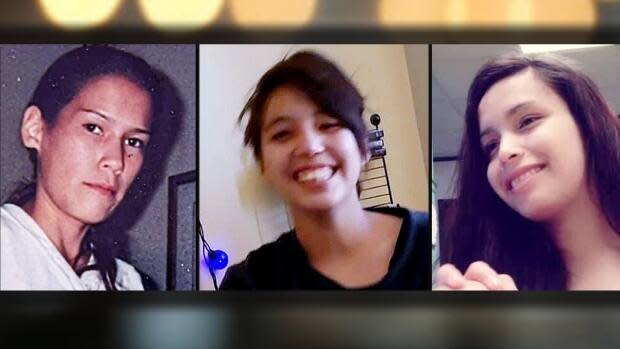
"Our decision today to proceed by judge alone is not a reflection of our faith in the jury system or a comment on the propriety of judicial independence, or any lack of respect for either mode of trial," he said.
"Rather, it is a consequence of the Crown's role at all times to continually assess our case and make sure a trial can proceed and conclude in a timely way."
Admission 'kind of a shock' to family
When asked whether he was happy with the update on Monday, Skibicki's lawyer, Leonard Tailleur, said "it's not a matter of happiness."
"It's to ensure that justice is done one way or the other, right? And that's what we're concerned with," Tailleur told reporters outside court.
"As things develop in a case, then you go with the developments."
Melissa Robinson, whose cousin, Morgan Harris, was one of women Skibicki has admitted to killing, said her family couldn't believe it when they heard that update.
"I don't even have any words," she said, "It was just kind of a shock, but we're so happy — our whole family will be so happy to hear this."
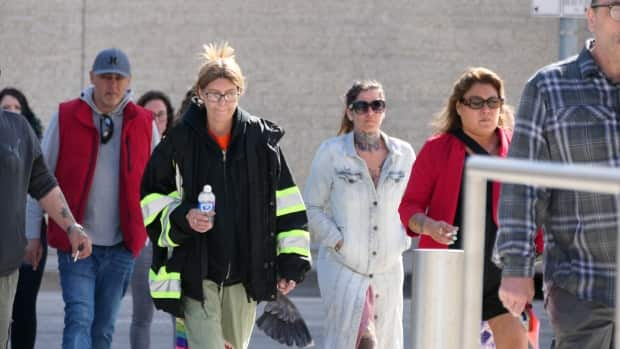
She said her family now plans to spend time together and share the news with people at Camp Morgan, the camp set up at a Winnipeg landfill as families pushed for a search for Harris's and Myran's remains, which have still not been recovered.
"And we'll be back here Wednesday morning, ready to go," Robinson said.
Defence previously tried to toss jury
Defence confirmed on Wednesday last week that they plan to argue a defence of not criminally responsible, as they made submissions on a motion to toss the jury scheduled to hear Skibicki's case.
That motion was their second attempt to have the case heard by a judge alone, after Court of King's Bench Chief Justice Glenn Joyal rejected a similar request earlier this year.
Both defence motions were filed as the Crown refused to provide their consent to have the case heard by a judge instead of a jury — consent that's required on certain charges in Canada, including murder.
Vanderhooft said Monday the Crown often consents to judge-alone trials in cases where a person is arguing they were not criminally responsible, when they're advised of that plan early on in the case.
He said Skibicki's defence first advised the Crown they planned to call expert evidence related to the issue of whether the accused is criminally responsible on March 14, and provided prosecutors with a copy of an expert opinion from the defence last Thursday evening.
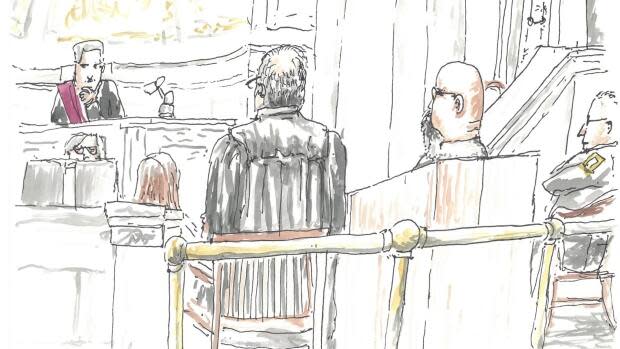
By then, he said the Crown had already found their own expert to testify for rebuttal on the issue if needed, in anticipation the defence might make such an argument.
Prosecutors were expected to make arguments Monday morning on a motion to admit similar fact evidence in Skibicki's trial.
However, those submissions were no longer needed after Crown and defence agreed the evidence would be admissible, Vanderhooft said, adding prosecutors plan to use it to establish intent and mental capacity in the case.
'Uphill battle' for defence: legal expert
The onus will now be on Skibicki's defence team to prove he was not criminally responsible in the women's deaths — a job Brandon Trask, an assistant law professor at the University of Manitoba, thinks could be tough to pull off.
Trask, who is not involved in the trial, said cases where a person argues they're not criminally responsible typically involve something they did over a short period of time. However, police said they believe Skibicki killed the women over a period of two months.
"Now you've got a potentially much longer period of time across the span of four killings. I think that's a real uphill battle for the defence in this case," he said. "It's going to be interesting to see what they try to put forward as proving that on a balance of probabilities."
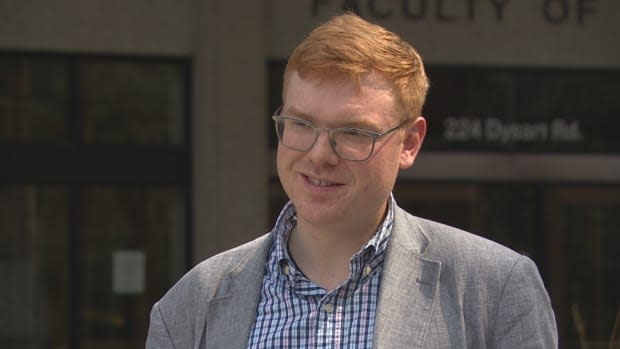
Skibicki's lawyers will have to prove both that he was suffering from what's known as a disease of the mind at the time of the killings, and that the disease made him unable to understand either what he was doing or that it was wrong.
Prosecutors, on the other hand, will have to "poke holes" in those arguments by cross-examining the defence's witnesses, Trask said.
Police initially arrested Skibicki roughly two years ago, after partial human remains later identified as Contois's were found in a garbage bin near a Winnipeg apartment building in mid-May 2022. The following month, police recovered more of her remains from the Brady Road landfill in south Winnipeg.
Police said their investigation determined the three other women were killed between March and May 2022 — before Contois died. Police said they believe Myran's and Harris's remains are in the Prairie Green landfill north of Winnipeg.
In March, the Manitoba and federal governments each pledged $20 million to go toward searching that landfill for the remains of the two women.
Police have said they believe Mashkode Bizhiki'ikwe was Indigenous and in her mid-20s, but the location of her remains is unknown.
The trial is scheduled to be back in court on Wednesday morning, when the judge has said he plans to call the jury in as scheduled to formally discharge them before the trial begins that day. The trial is scheduled to continue until June 6.
WATCH | Jeremy Skibicki to be tried by judge alone:


